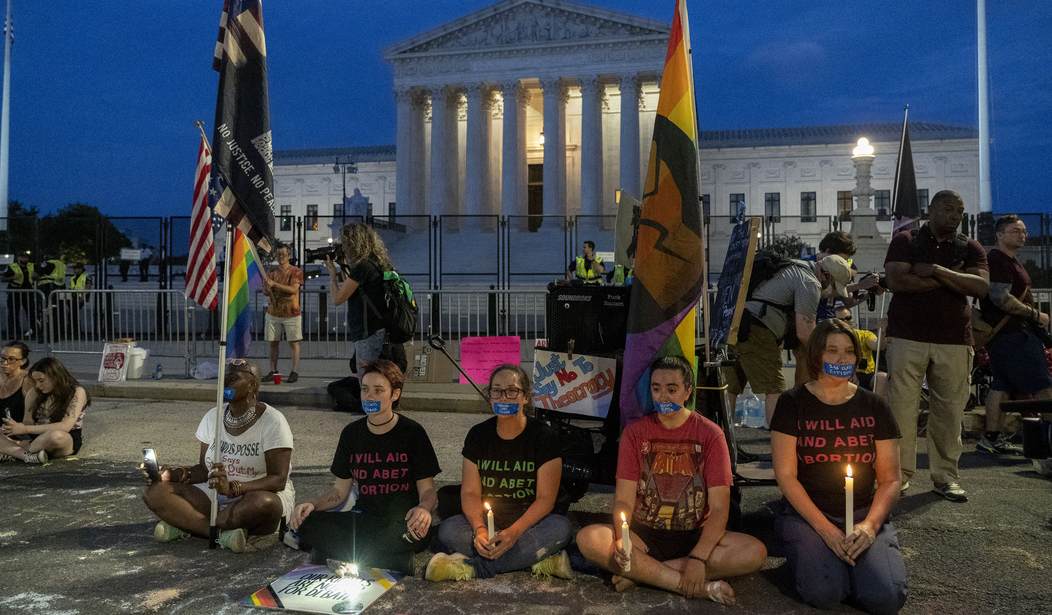This past week and a half has been truly remarkable. From a conservative perspective, and a legal conservative perspective more specifically, there has not been a condensed period of such consistent, meaningful winning in my entire adult lifetime.
The Supreme Court's ruling in Biden v. Texas, the "remain in Mexico" policy immigration challenge, is a disappointment and will have deleterious real-world consequences for America's security and sovereignty along its porous southern border. But the Texas litigation is hardly over, and it will now return to a favorable district court judge.
In all other recent meaningful cases this Supreme Court term, conservatives have indisputably triumphed.
Conservatives scored huge wins for religious liberty in this term's cases of Carson v. Makin and Kennedy v. Bremerton School District, which had the combined effect of peeling back decades of progressive jurisprudence, based on the ahistorical misnomer of "separation of church and state," that discriminated against the faithful in the public square. In New York State Rifle & Pistol Association v. Bruen, conservatives scored a huge win for the Second Amendment, as the Court for the first time clarified that "bear(ing) arms" -- and not just "keep(ing) ... arms" -- means what it plainly says. Most dramatically, the Court in Dobbs v. Jackson Women's Health Organization stood its ground and failed to capitulate to the outrage mob that followed May's leaked draft majority opinion; Roe v. Wade and Planned Parenthood v. Casey, the Court's major abortion precedents, are no more.
Add to the equation the latest victory in West Virginia v. EPA, which cabins rogue agency discretion and hamstrings the former Obama administration's "Clean Power Plan" environmentalist power grab, and the result is a genuinely dynamic Supreme Court term. There is ample reason to celebrate.
Recommended
The demise of Roe and Casey, in particular, is nothing short of epochal. The overturning of Roe, a 1973 case that only had only two courageous dissenters, was the foremost raison d'etre for the modern conservative legal project, including its prevailing constitutional interpretive methodology (originalism) and its leading institutional vessel (The Federalist Society, founded in 1982). Kudos are in order for all involved, including the five justices in the Dobbs majority, and very much also including former President Donald Trump and Senate Minority Leader Mitch McConnell (R-KY). Tens of millions of Americans who, in an alternative universe, would have faced the abortionist's knife, will now be indebted to them.
But with Roe now joining Dred Scott v. Sanford, Plessy v. Ferguson and some of the Court's other worst decisions in the ash heap of history, the centripetal force that long kept the conservative legal movement unified is gone. The fight is now on to see what exactly comes next -- and how different it is, in terms of tangible goals or interpretive methodology, from what preceded it.
The key insight is that, for the past four to five decades, conservative jurisprudence and the broader conservative crafting of an agenda for the courts have typically operated from a defensive posture. There are some exceptions; the long-overdue securing of a Second Amendment individual right in 2008's District of Columbia v. Heller, whose majority opinion is the late Justice Antonin Scalia's signature originalist triumph, came from an offensive-minded strategy.
But most of the time, on cases of lightning-rod cultural and civilizational salience, conservatives have simply sought to return to the pre-Burger Court, or pre-Warren Court, status quo ante. On abortion, that has meant a middle-ground federalist remedy, simply seeking to de-constitutionalize Roe's abortion "right" and return the issue to the states. That is what Dobbs did. On religious liberty, it has meant simply returning to a level playing field in which religion is not discriminated against. In Kennedy, for instance, the Court for the first time clarified that a 1971 case called Lemon v. Kurtzman, which fabricated an egregious "endorsement test" for Establishment Clause violations, was no longer good law.
In both of these doctrinal areas, then, the goal has merely been some sort of "neutrality." But neutrality is an uninspiring goal for a political movement. The proper long-term goal is not neutrality, but victory. The time for playing jurisprudential and judicial defense is thus over. The time is now right for legal and judicial conservatives to go on offense.
At a theoretical level, that means more widespread adoption of "common good originalism," a strand of originalist jurisprudence I have proposed that is both less wedded to dispositional shibboleths about "judicial restraint" and more assertive about its substantive overarching orientation toward justice, human flourishing and the common good of the polity. On abortion, that means properly interpreting the 14th Amendment's Equal Protection Clause to actually ban abortion nationally. On public religion, that means bolstering America's traditional ecumenical Christianity once and for all and delivering a fatal blow to the ahistorical misnomer of "separation of church and state," which has no textual basis in the First Amendment and instead derives from a 233-word letter Thomas Jefferson once wrote. Other examples abound.
"Justice, justice shall you pursue," reads Deuteronomy 16:20. Not proceduralism, that is, but justice-- the rewarding of friends and the punishing of enemies within the confines of the rule of law. The modern conservative legal movement just had its most successful Supreme Court term; now it's time for real, meaningful justice.
To find out more about Josh Hammer and read features by other Creators Syndicate writers and cartoonists, visit the Creators Syndicate website at www.creators.com.

























Join the conversation as a VIP Member